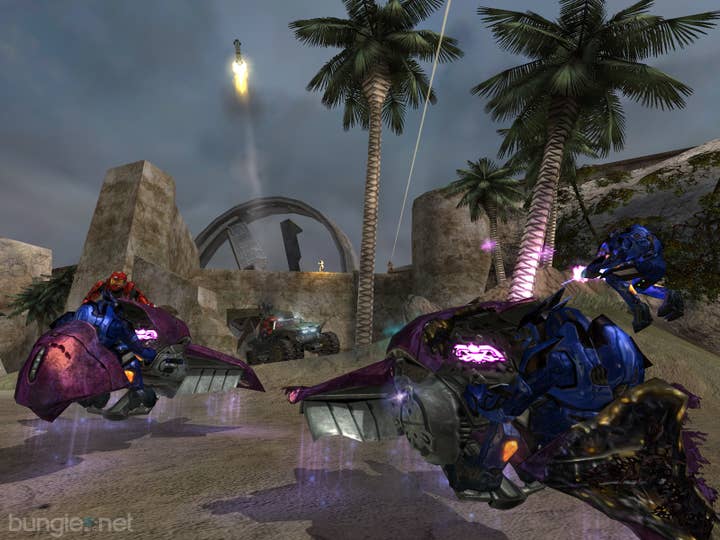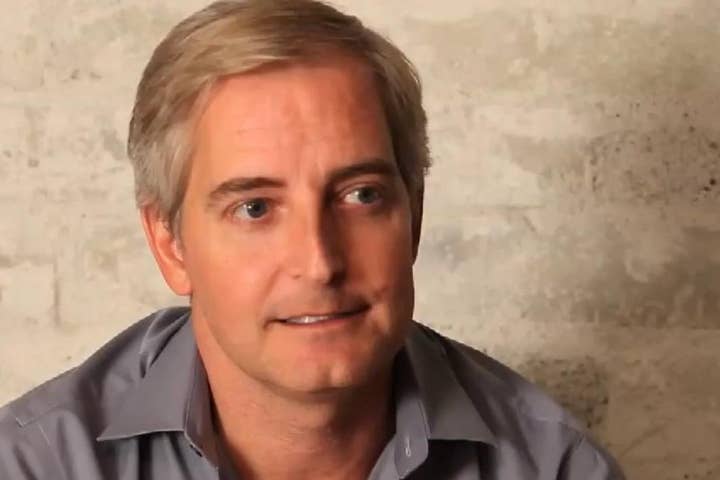Fries: Publishers created a void that indies stepped into
Xbox co-creator on the trend of “fewer and fewer titles that are less and less innovative” and how the pressures of AAA led him to leave MS
At the DICE Summit earlier this month, industry veteran Ed Fries gave a passionate and quite personal talk about his love of "making stuff" and he recalled how an atmosphere at Microsoft eventually became toxic enough that it interfered with that. Following his presentation, GamesIndustry International sat down with the former Xbox leader to learn more.
As it turns out, what Fries was describing was unfortunately becoming a reality of the AAA console business. The economic pressures of AAA were mounting; it wasn't just a Microsoft problem, but the industry as a whole was dealing with the push and pull between creativity and profitability.
"What I hadn't really thought all the way through was what it really means to be a first party, and by 2003 that was becoming clear. The [Xbox] project as a whole was losing money, which I don't think is a big surprise, but there was a belief going in that first-party could be the savior of the project from a financial point of view. It was sort of the classic lose money on the hardware, make money on the software thing. The reality was we had to make the best games on the platform but we could only sell to the market base that was installed and we had a relatively small installed base at that time," he described.
"We [were told that we] need to do less and less things and we need to do bigger and better... That's infected the whole console industry where every year there are fewer and fewer titles and they are less and less innovative"
"So the conversation kind of goes, 'You're not making enough money.' And I'd say something ridiculous like, 'Well we could make more money if you'd allow me to put Halo on PlayStation.' 'You can't do that,' they say of course. I say, 'Well stop bugging me about making more money then.' So you're kind of in this box where you're really expected to do platform leading work but if you're also trying to make a profit it's very difficult with the size of the market you can address when you're a minority share console," he lamented.
Fries desired nothing more than to foster more creativity within the Xbox studio system, but at a big corporation like Microsoft, nothing matters more than the bottom line. It was difficult for Fries to come to grips with this, and it's unfortunately endemic to the AAA publishing business.
"Basically it took me a while to really understand the position that I was in, and what it meant was whereas I was used to running my own business and I was used to running it in a very experimental way and trying lots of things - and I like to think that that's where a lot of our big franchises came from - there was a sort of conservatism that descended [upon us]. We [were told that we] need to do less and less things and we need to do bigger and better," he said. "In a sense, I fundamentally didn't agree with that because I think the big things come from little things. And I think that's somewhat of a disease that's infected the whole console industry where every year there are fewer and fewer titles and they are less and less innovative."
Software and creativity are ultimately what drive this industry forward, however. And while many developers may have felt stunted at the big publishers, more and more independent developers started to take advantage, Fries commented.
"It created a void. The publishers through their actions created a void that the indies have stepped into and... you can look at it as a failing of the publisher infrastructure in general but those forces were ones that I was facing to an extent..." he continued. In his DICE talk, Fries made an analogy to the book/movie Ender's Game, and it's the forces alluded to above that he was describing. "I say it in a funny way in the talk, 'I set into motion forces that would destroy.' Those forces were there and they were going to destroy, whether I was there or anyone else," he clarified.
It all came to a head for Fries and his career as development on Halo 2 progressed. The "forces" were too strong to ignore.

"After Halo 1 had shipped, Jason Jones, the creative genius behind the series, wanted to go off with a small group and create a second Bungie franchise. I was a fan of that [idea] and they went off to do work on that and the plan was for all the different leads from Halo to go ahead and do Halo 2 as a committee, without Jason [overseeing it]. After a year and a half or so of trying to do that, it became clear that it wasn't working - they actually need that guy and he's central to its success - so Jason came back and reevaluated the progress they had made and made a number of pretty serious course corrections to what would become Halo 2," Fries recalled.
"He came to me and said he needed another year. I went to my boss and said it needs another year. Obviously it's a very important project to Xbox as a whole. His idea was we should have a vote among his directors. There was a head of marketing, who was a Hollywood guy who'd come in not too long before, there was a head of finance who was a Hollywood guy, and there was a head of OS and head of hardware and myself. We went into the meeting and the choices were basically, do we force the Bungie team to ship the product that they don't want to ship on the original schedule or do we give them the year they needed to make the product they want to make on the most important franchise we had?"
"I've known Shu Yoshida for a long time and I'm a big fan of his work and I think the company's given him the space he needs to do a great job there"
You can probably guess what happened from here. Those "forces" started to reveal themselves to Fries.
"The vote was unanimous, other than me, that we should force the team to stick to the original schedule. So coming out of that meeting I threatened to quit immediately and my boss relented and gave us the extra year. But it was clear to me that the writing was on the wall that this was the way things would be going forward. And for less important franchises, less important products, I would have even less leverage than I had in that particular case," he explained.
Fries had had more than enough. By January 2004, a full ten months before Halo 2 shipped, he announced his resignation, leaving a spot vacant for Shane Kim to fill. Fries had nothing but good things to say about Kim. "I left because it was a bad situation and other people had to go in and try to clean up that situation. They had less clout than me - I'd been at the company for 18 years, so to take someone more junior and give him the same set of problems with less leverage I think they did a pretty good job," he remarked.
Ten years after Fries left Microsoft, the studio system there arguably still hasn't fully recovered. Fries assessed the current state of the console companies almost with a sense of envy. "I have a lot of respect for Nintendo and Sony. Sony's done some very innovative work, with Journey probably sitting on top. I've known Shu Yoshida for a long time and I'm a big fan of his work and I think the company's given him the space he needs to do a great job there," he said, tying it all back into his comments on the indies filling a void.
As for Nintendo, Fries downplayed the struggles the company has seen of late. "The core of what Nintendo has always done well is make great games. I think if they focus on that they will do well. I think it's important to really pick a direction that fits with the DNA of the company," he said before describing an encounter he had with Shigeru Miyamoto.
"I met Miyamoto once in a small setting many years ago...We shared a short bus ride, and I was starstruck. He asked me a question: 'What should I do next? Would you like a sequel to one of my games or a new game?' I didn't really think about it and I said, 'I'm a huge Zelda fan, and Ocarina of Time was amazing so I'd love to see another Zelda.' And I just saw in his eyes that I'd answered the question the wrong way. And I realized, 'Oh yeah, he's just had this pressure to keep doing sequels after sequels, and what he wants to do is cool, new creative stuff'," Fries said, remembering - ironically - that he'd been facing the same pressures at Microsoft.
"I think when Nintendo does, new and original creative work, they are as good as anybody in the world, so I would encourage them to continue to do that."

